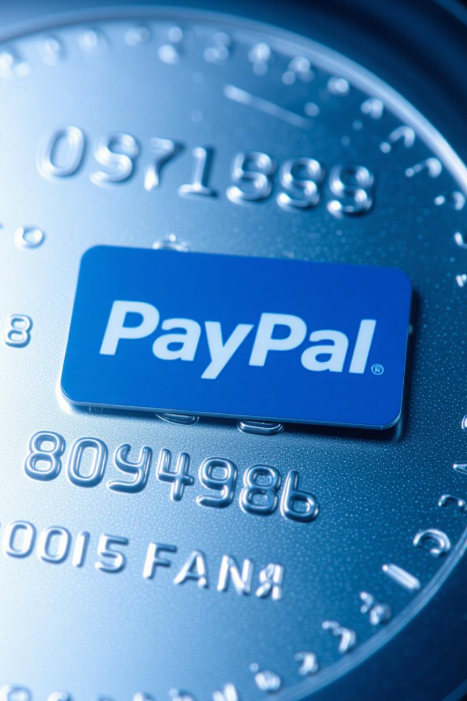Remember that time when you thought your Gmail account was bulletproof? Well, it turns out even Google can’t keep all the bad guys out. This week, the tech giant dropped a bombshell that has left millions of users scrambling to check their account security. Google has officially warned its massive user base of 2.5 billion Gmail accounts that hackers have successfully broken into their systems, and now everyone needs to take immediate action.
If you’re like most people, you probably use Gmail for everything – from personal conversations to work emails, online shopping receipts, and banking notifications. That little inbox has become the digital hub of our lives. So when Google says there’s been a security breach, it’s time to pay attention.
What Actually Happened?
Let’s break down what we know so far. According to multiple reports, hackers managed to pull off what security experts are calling “successful intrusions” into Google’s systems. But here’s the thing – this wasn’t your typical password hack where criminals steal login credentials and start sending spam from your account.
Instead, the attackers went after something potentially more dangerous: Google’s internal business database. They managed to access a corporate Salesforce system that contained contact information, business names, and related notes. Think of it like breaking into a company’s filing cabinet rather than individual employee lockers.
Google has been quick to clarify that no actual user passwords were stolen in this breach. Your Gmail password is still safe, technically speaking. They also confirmed that payment information and other sensitive personal data weren’t compromised. But before you breathe that sigh of relief, there’s a catch that makes this situation particularly nasty.
The Real Danger: Social Engineering on Steroids
Here’s where things get scary. The stolen information might seem harmless on the surface – just business contact details and company names. But in the wrong hands, this data becomes a goldmine for sophisticated scam operations.
Imagine receiving a phone call from someone who knows your business name, your contact details, and even some notes about your company. They sound professional, claim to be from Google support, and seem to know just enough about your account to be convincing. That’s exactly what’s happening right now.
Users across Reddit’s Gmail community and other forums are reporting a massive surge in phishing attempts. These aren’t the usual poorly-written spam emails with obvious typos. We’re talking about highly targeted, personalized attacks that use the stolen business data to make scammers sound legitimate.
The attackers are getting creative too. Google has specifically warned users to be extra cautious about calls and emails that appear to come from the Silicon Valley “650” area code. Scammers are spoofing this local Google number to make their calls seem more authentic.
Why This Matters More Than You Think
You might be wondering, “If my password wasn’t stolen, why should I care?” Here’s the reality check: modern cybercrime isn’t just about stealing passwords anymore. It’s about building trust and manipulating people into handing over their information voluntarily.
When a scammer calls you with your business name and contact details already in hand, they’ve cleared the first hurdle of seeming legitimate. From there, they can spin all sorts of stories. Maybe they’ll claim there’s suspicious activity on your account and they need you to “verify” your password. Perhaps they’ll say Google is updating its security system and you need to provide your two-factor authentication codes.
The psychological impact is real. When someone already knows personal details about you, your guard naturally comes down. It’s the same reason why those “your grandson is in jail and needs bail money” scams work so well on elderly people – the scammer has just enough real information to seem credible.
What Google Is Recommending (And What You Should Actually Do)
Google’s official response has been to urge all 2.5 billion Gmail users to update their passwords and strengthen their account security. But let’s be honest – that’s pretty generic advice. Here’s what you actually need to do, broken down in simple terms:
First, change your password immediately. Even though Google says passwords weren’t compromised in this specific breach, there’s no harm in being extra careful. Choose something strong – a mix of upper and lowercase letters, numbers, and symbols. Better yet, use a password manager to generate something truly random.
Enable two-factor authentication if you haven’t already. This is probably the single most important step you can take. Even if someone gets your password, they still can’t access your account without that second verification step. Google offers several options, including text messages, authenticator apps, and physical security keys.
Consider upgrading to Google’s Advanced Protection Program. This is Google’s most secure option, designed for people who are at higher risk of targeted attacks. It requires using physical security keys and restricts which apps can access your Gmail data. It’s a bit more hassle, but if you handle sensitive information through Gmail, it’s worth considering.
Switch to passkeys when possible. This is newer technology that Google has been pushing as a replacement for traditional passwords. Passkeys are more secure against phishing attacks because they’re tied to specific websites and can’t be tricked into working on fake sites.
The Bigger Picture: What This Means for Online Security
This Gmail breach is part of a troubling trend in cybersecurity. As companies get better at protecting the obvious targets like passwords and payment information, criminals are getting smarter about attacking the less obvious vulnerabilities.
The fact that hackers targeted Google’s business database rather than user accounts directly shows a sophisticated understanding of how modern scams work. They’re not trying to break into your account anymore – they’re trying to trick you into giving them access yourself.
This approach is working, too. Social engineering attacks – where criminals manipulate people rather than just hacking systems – are becoming increasingly common. The stolen Google data gives scammers exactly what they need to make these attacks more convincing.
Red Flags to Watch For
In the coming weeks and months, you need to be extra vigilant about any communication claiming to be from Google. Here are some specific warning signs to watch for:
Unexpected phone calls from “Google support.” Google rarely calls users directly, especially about routine security issues. If someone calls claiming to be from Google and asking for account information, hang up and call Google’s official support number yourself.
Emails asking you to “verify” your account immediately. Real security alerts from Google will show up in your account’s security dashboard, not just in your email. If you get an urgent email about account security, log into your Google account directly (don’t click links in the email) and check your security settings.
Requests for two-factor authentication codes. Google will never ask you to share these codes over the phone or email. If someone is asking for your 2FA codes, they’re definitely trying to scam you.
Messages that seem to know too much about your business or account. This is the new twist thanks to the stolen data. Just because someone knows your business name or contact details doesn’t mean they’re legitimate.
Building Better Security Habits
This incident should be a wake-up call for anyone who’s been coasting on basic security practices. The reality is that massive companies like Google, with all their resources and expertise, still can’t guarantee perfect security. That means we all need to take personal responsibility for protecting our digital lives.
Start by doing a security audit of your important accounts. How many of them use the same password? How many have two-factor authentication enabled? How often do you actually check your security settings?
Consider this an opportunity to level up your digital security game. Yes, it’s a bit of work upfront, but it’s a lot less work than dealing with a compromised account later.
The internet isn’t getting safer, but it doesn’t have to get more dangerous either. With the right precautions and a healthy dose of skepticism, you can stay ahead of the scammers – even when they have more information about you than they should.
Remember, when it comes to online security, paranoia isn’t a bug, it’s a feature. Stay safe out there.
Have you received any suspicious calls or emails recently that might be related to this breach? Share your experience in the comments below, but remember not to include any personal account information.



